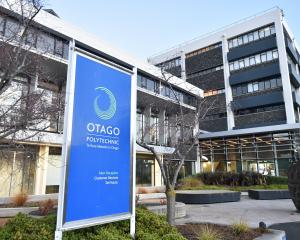It is said, timing is everything. It is something of a surprise then, that a week after New Zealand ratified the global Paris climate change accord in New York, it is announced the life of the country's last two coal-fired power generators at Genesis Energy's Huntly Power Station will be extended by four years.
It's hardly a good look, which explains the positive focus put on the announcement by 51% Government-owned Genesis Energy and Energy and Resources Minister Simon Bridges.
Both are lauding the "continuing commitment to phasing out its two remaining coal units by 2022''.
Lest we forget, last year Genesis said it would phase out the two coal units by the end of 2018, a move which gave the country some much-needed - and internationally noted - climate-change credentials.
So why the brakes?
The delay (for the minister and generator are adamant it is not a U-turn) is, according to Mr Bridges, a "short-term security of supply solution'', agreed to by Genesis and the other electricity generators as a result of concern about dry years, changes to the electricity market, the time required to develop new generation and the ongoing uncertainty about the future of the electricity-intensive Tiwai Point aluminium smelter.
All are undisputed sticking points, and the market has reacted positively to the announcement of the four-year reprieve.
For while the country does have good renewable energy sources (and the Government maintains it is still on track to meets its 2025 target of 90% renewable electricity generation), it does still need the coal-fired back-up in dry years when hydro-lakes are low.
Tiwai Point is the sector's elephant in the room, however.
Were it to close, and its demand cease, the market would be flooded with electricity.
At the moment, thanks to a Government/Meridian Energy deal, the business, jobs and electricity demand are safeguarded.
But, given the volatile aluminium market and climate change and emissions commitments, its fate is far from certain.
It is clear then, there was little choice but to maintain the status quo at Huntly for the short term.
But that won't solve the pressing climate-change issue for the long term, or help with the country's also short-term emissions reduction commitment of 30% below 2005 levels by 2030.
It is true New Zealand is a low-emitter on a global scale, but that is no reason to be complacent.
On a per-capita basis we are actually a high emitter, and we cannot expect other countries to make genuine reductions if we do not.
And we need others to make significant reductions.
As an island nation, reliant on agriculture, we have a lot to lose from the effects of climate change.
So although electricity generation makes up only 6% of this country's carbon emissions, as long as the Government steadfastly refuses to take agriculture (which accounts for almost half our total emissions) to task, the energy and transport sectors (which together account for 40% of emissions) will pay the price.
And that price will inevitably be passed on to consumers through the likes of petrol prices, road taxes and higher electricity charges.
The environment and economy are inextricably entwined, and balancing both is essential for sustainable progress.
There must be more collaboration between ministries around Tiwai's long-term future, and a more urgent focus on new renewable energy, which can provide new jobs and energy security and reduce our carbon footprint.
It is still unsettling to hear Government and industry leaders talk about waiting for the development of and demand for new technologies, before we can really speed up our emissions reductions, when the need for action on climate change has been discussed for more than 20 years.
Short-term solutions are of little use when it's a case of now or never.












